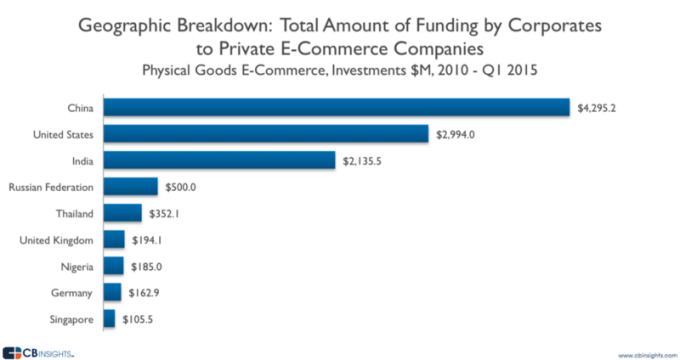Jumia is shutting most of its operations across Africa. From Cameroon to Tanzania, the next on the line is Jumia Foods Rwanda. According to Jumia Technologies the suspension of its food and drinks delivery service Jumia Foods Rwanda takes effect from December 9, 2019. The suspension comes after Jumia said it had shut its e-commerce business in Tanzania in late November, and in Cameroon in the middle of the same month.
“We have made the difficult decision to suspend our on-demand services in Rwanda effective on … December 9th, 2019,” the company said in a statement.
“While decisions like these are always difficult, it is more important now than ever to put our focus and resources where they can bring the best value and help us thrive.”

Here Is All You Need To Know
- With an e-commerce business similar to Amazon’s and a classified portal like Alibaba’s, Jumia sells its own stock and takes a cut of third-party transactions on its website.
- But that business model has yet to pay off. Jumia missed revenue estimates for the second time in three quarters, according to results announced in November.
- The closure however, did not start today; it began in 2014 amid allegations of fraud which cost the business up to $1 billion. The closure of Jumia Food Rwanda operations is the fourth in a row after the online retailer first closed its entire Rwandan e-commerce business in 2017 over quality issues, focusing on its food delivery services in the country.
- The closures bring Jumia’s footprint in Africa to 11 countries and point to the difficulty of running an ecommerce business across a continent with weak infrastructure, under-developed logistics and a general lack of trust in online shopping.
- It also puts a dent in what the Rocket Internet-backed company has long touted as one of its key advantages: scale.
- Sacha Poignonnec, co-chief executive, said the exits were routine, as the company reassesses its markets, products and services. He noted that in the past, it had left countries such as Mozambique and closed its ride-hailing business. On Tuesday, Jumia also said it is in effect shutting its travel website.
“It’s a continuity of recent changes and the strategy is very much for us, it’s very simple, we are engaged in taking Jumia to profitability and drive penetration of JumiaPay,” he said, referring to the company’s payments platform. “Sometimes we make decisions to change the scope of countries or categories . . . but it is in the normal life of a company to adjust the focus, but the strategy remains very much the same.”
- Mr Poignonnec emphasised the need to control costs. Losses grew to €54.6m in the third quarter from €40.6m a year earlier, while revenues missed analyst estimates for the second time in three quarters. Jumia has run up more than $1bn in losses since launching in 2012 in Nigeria.
- But Mr Poignonnec cited the success of Amazon, China’s Alibaba and Latin America’s Mercado Libre as proof that the model Jumia is pursuing can work. He pointed to Jumia’s rising customer and seller numbers as positive signs.
Fintech, the New Profitable Model?
Jumia ’s closure in Cameroon, Tanzania and its gradual winding down in Rwanda cannot just be disregarded. The New York-listed company has made it clear in recent times that it is shifting more of its focus on its payment platform, Jumia pay while cutting back on the e-commerce business. Indeed, unconfirmed sources say Jumia is contemplating pulling out of its Congo and Gabon operations too. Consequently, the company now maintains presence in 13 African countries including Kenya, Ghana, Senegal, Nigeria, South Africa, Egypt, Morocco, Uganda, Tanzania, Rwanda, Ivory Coast, Tunisia, and Algeria.
Read also: Behold Jumia, The German Company That Became A Nigerian Fraud
Could the new focus on fintech be a major indictment on eCommerce in Africa?
Recall that Konga, a similar eCommerce company, recently gave up the ghost earlier than expected and got swallowed up by Zinox Group, a deal that was quoted in some quarters to be worth $32.4 million, which was grossly a sad event for an e-commerce company that was once valued at $383 million by Naspers.
From disclosures made in the Prospectus to the Initial Public Offering, it does not also appear that Nigeria, Jumia’s primary market, is seriously considering investing significantly in the eCommerce business. As a matter of fact, about 60.5% of Jumia’s shareholding before going on its first public offering consisted of European nationalities, while South Africa takes a staggering 29.7% of the shareholding at the said time. Even before Konga was acquired by Zinox Group, Kinnevik (Swedish) and Naspers (South African owner of Multi-Choice, M-Net, OLX) had a combined shareholding of 89.4%. Perhaps the fear would lie in the humongous losses sustained by these companies.

Jumia’s losses increased by 60% from €41.9 million (KSh4.8 billion) in first half of 2018 to € 66.7 million (KSh7.6 billion) in the first half of 2019. The Berlin-based company also recorded a loss of KSh 6.2 billion in Q2 of 2019, a 60% increase from 2019 Q1 losses.
Citron Research (the American research firm that publishes reports on firms that Citron Research founder, Andrew Edward Left thinks are overvalued or are engaged in fraud) had earlier in 2019, in the aftermath of Jumia’s IPO, said, in a twelve-page document, that it had never seen such an obvious fraud as Jumia’s first Initial Public Offering, held from the 11th of April, 2019, in its 18 years of publishing.
Charles Rapulu Udoh

Charles Rapulu Udoh is a Lagos-based Lawyer with special focus on Business Law, Intellectual Property Rights, Entertainment and Technology Law. He is also an award-winning writer. Working for notable organizations so far has exposed him to some of industry best practices in business, finance strategies, law, dispute resolution, and data analytics both in Nigeria and across the world
